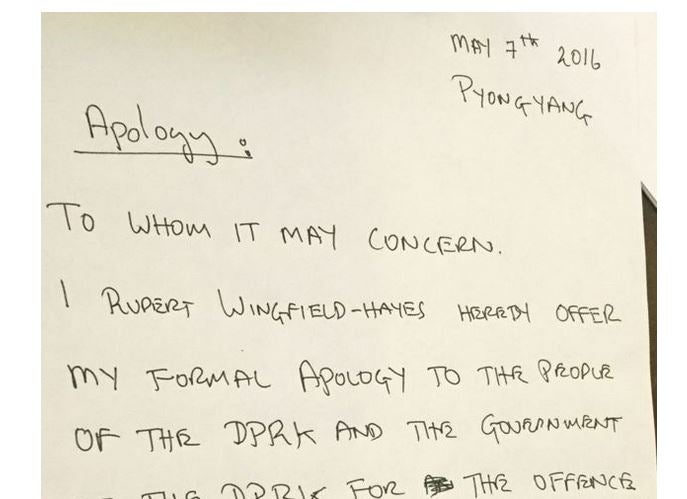
BBC correspondent Rupert Wingfield-Hayes has revealed how he was interrogated for ten hours before being expelled from North Korea earlier this month.
He said the week-long visit had been exhausting: “I couldn’t move anywhere in Pyongyang without a team of five minders following my every step”.
His account of his interogation suggests that poor translation might be partly to blame for the evident offence taken by the North Korean authorities over his reports.
He said he was show copies of three articles he had published on the BBC website:
Part one: North Korea inches open its doors
Part two: The limits of small talk in Pyongyang
Part three: Searching for self-reliance and ‘real people’
Wingfield-Hayes recounted his interview:
“Do you think Korean people are ugly?” the older man asked.
“No,” I answered.
“Do you think Korean people have voices like dogs?”
“No,” I answered again.
“Then why do you write these things?!” he shouted.
He said he was shown this passage from one of his pieces:
The grim-faced customs officer is wearing one of those slightly ridiculous oversized military caps that they were so fond of in the Soviet Union. It makes the slightly built North Korean in his baggy uniform comically top heavy. “Open,” he grunts, pointing at my mobile phone. I dutifully punch in the passcode. He grabs it back and goes immediately to photos. He scrolls through pictures of my children skiing, Japanese cherry blossom, the Hong Kong skyline. Apparently satisfied he turns to my suitcase. “Books?” he barks. No, no books. “Movies?” No, no movies. I am sent off to another desk where a much less gruff lady is already looking through my laptop.”
Evidently the North Koreans took grim to mean ugly, and and thought bark was meant literally.
Wingfield-Hayes said one of his interrogators said: “I am the one who investigated the case of Kenneth Bae, and now I am going to investigate you.”
Bae is a Korean American Christian missionary who was sentenced to 15 years’ hard labour by Pyongyang in 2013.
Wingfield-Hayes eventually secured his release by writing an apology for any offence caused by his coverage. But he refused to read it out on video.
Email pged@pressgazette.co.uk to point out mistakes, provide story tips or send in a letter for publication on our "Letters Page" blog
